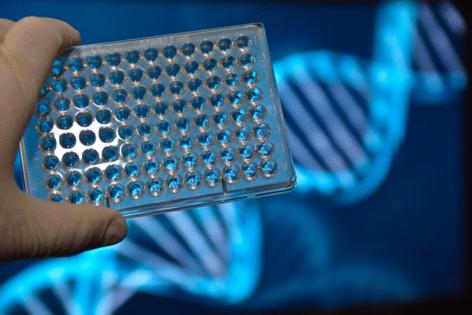Ask the Pediatrician: Prenatal genetic testing and screening: What to consider
Published in Health & Fitness
When you're expecting a baby, you can also expect to have lots of medical tests. Ultrasound imaging, glucose monitoring and other health checks are a routine part of every pregnancy.
There are reasons you might want to consider genetic testing too, especially if you want to know if a health issue that runs in your family may affect your child. If you're 35 or older, you might worry about risks for genetic conditions (which rise with age).
Whatever your concerns, keep in mind that genetic testing is 100% optional. Your decision may reflect your personal beliefs, your family health history and the advice of your health care team.
Typical humans have 26 pairs of chromosomes in every cell. Pairs are formed during conception, when egg and sperm cells come together. One chromosome comes from the mother and one from the father, making matched pairs totaling 46 chromosomes in all.
Variations in the matching process can have a major impact on a child's health. Babies born with an extra chromosome 21 usually have Down syndrome, a condition that changes their facial features, muscle tone, learning abilities and more. In other cases, children can inherit a gene that causes a specific illness. Sickle cell disease is one example of single-gene conditions present at birth. However, both parents would need to be carrying the gene in order for sickle cell to present itself.
Every child born with a genetic condition is different. Some have brain differences that affect learning and development while others have body parts or systems that are formed differently and may not function well. In some cases, genetic disorders cause miscarriage or stillbirth. Still, some have no serious health issues at all.
Prenatal genetic testing supports parents by offering them the gift of time. Knowing beforehand that their child might be born with a health issue or genetic condition can help them cope with powerful emotions and seek much-needed support. It also helps parents make key decisions about their baby's care. Testing can even uncover serious conditions—such as a malfunctioning heart—that neonatal surgeons can treat before babies are born.
Health conditions that prenatal genetic testing can reveal include aneuploidy (too many chromosomes), such as Down syndrome, monosomies (missing chromosomes) like Turner syndrome, microdeletions like Williams syndrome that happen when a chromosome or part of a chromosome are missing, and single-gene conditions such as cystic fibrosis, which occurs in the same way sickle cell does with recessive genes from both parents.
Prenatal genetic tests fall into two groups, based on what test results might show. Screening tests use a sample of the pregnant parent's blood to look for elevated risks of genetic conditions. Diagnostic tests go one step further by sampling fluid and tissues inside the womb to gain access to your baby's DNA. These tests can confirm a specific diagnosis.
Biological parents can also be screened before or after conception to see if they are "carriers" for health conditions that run in families. Some parents carry these health risks without knowing it. Both parents should be tested, since babies of two carrier parents have a higher likelihood of being diagnosed with the condition. Carrier screening is not required for future pregnancies, since the results will be noted in each parent's medical records.
Early blood tests on a pregnant parent may be able to detect a higher risk of certain conditions, predominately those that result in too few or too many chromosomes (Turner syndrome or Down syndrome). This test is often referred to as NIPT/S (non-invasive prenatal testing/screening). This only determines a risk and does not provide a definitive diagnosis.
Prenatal genetic testing is a personal choice, but the process of deciding can cause confusion and stress. If you're unsure, talk with your health care team. Your OB-GYN or pediatrician can answer common questions about genetic testing — both the benefits and limitations. Parents can also meet with a genetic counselor to review family risks and learn more about the value of genetic testing.
Your health care team, which might include a genetic counselor or geneticist, can help you make informed decisions about testing and your child's health.
Remember, having a child with a genetic condition does not change their worth as an individual or how much you love them.
____
Samantha Vergano, MD, FAAP is the chair of the AAP Committee on Genetics and serves as the Associate Medical Director for Outpatient Services in the Division of Genetic Medicine at Seattle Children's Hospital.
©2025 Tribune Content Agency, LLC.










Comments